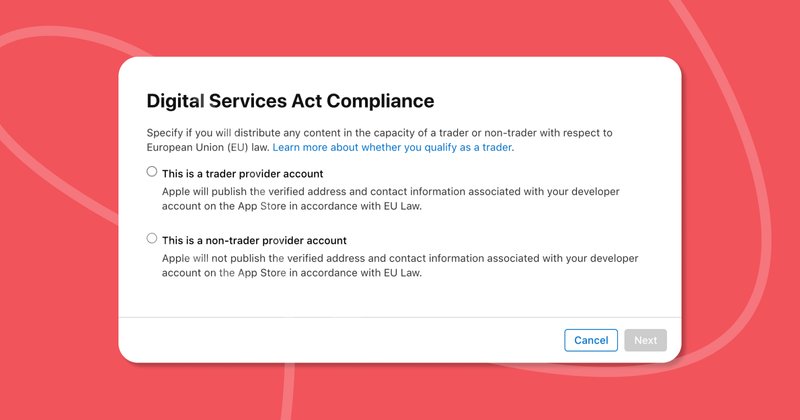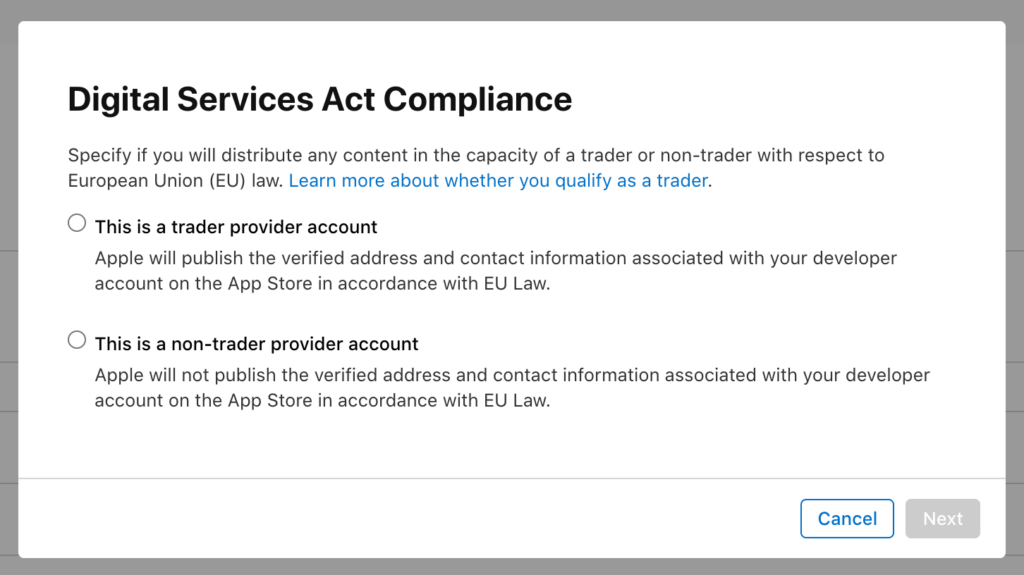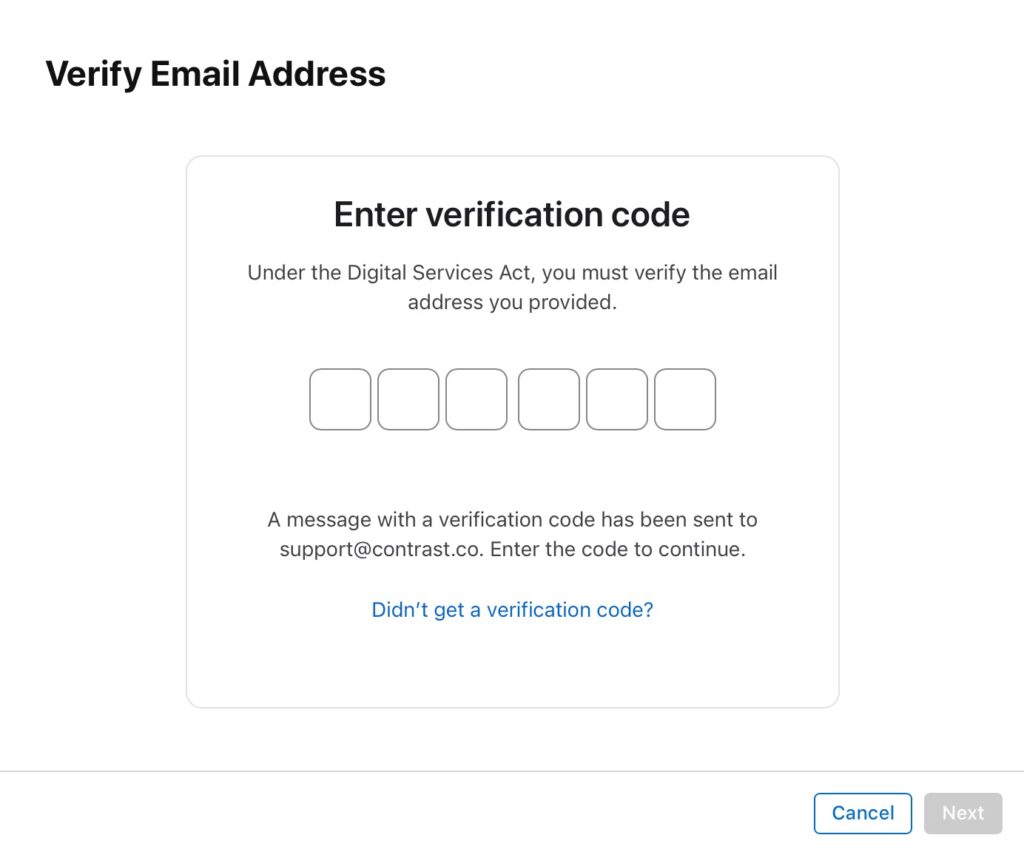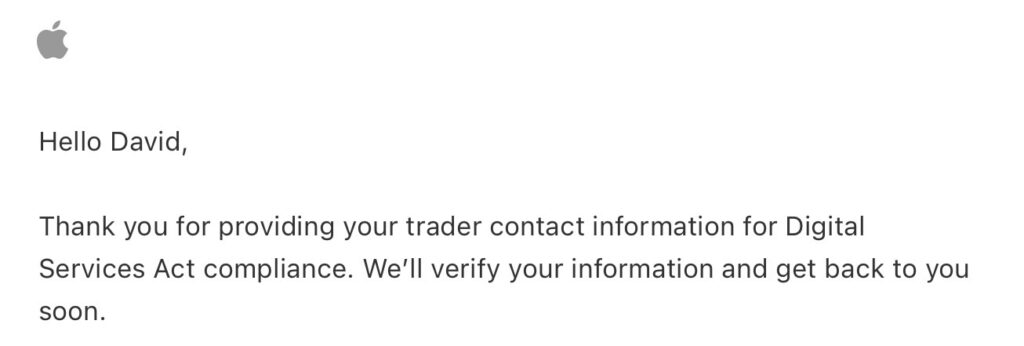Am I a trader? And other existential questions for developers
Making sense of App Store Connect's latest change from Apple's DSA compliance.

If you are reading this, you probably got asked the inscrutable question inside App Store Connect: “are you a trader?”

Fun.
The Digital Services Act is Europe’s latest foray into regulating “the internet”. It focuses on regulating platforms and online services to “prevent illegal and harmful activities online and the spread of disinformation.” To achieve this, I gather, it’s important that they publish your home address on the App Store. Without diving into the dirty details of EU regulation, I want to address the question for anyone who is contemplating how to answer this modal.
Am I a trader?
If you make money with your app, probably. The European Commision defines trader extremely broadly as any business or person “acting in his or her name or on his or her behalf, for purposes relating to his or her trade, business, craft or profession.” We are not lawyers at RevenueCat, but it seems pretty clear that if you are transacting with any European consumers, you fit this definition.
What should I do?
Apple has stated you will need to answer the question either way before you can submit new apps to the App Store.
If you aren’t actually making any money, i.e. all your apps are free, you can probably just say you aren’t a trader and move on with your life.
If you are lucky enough to be making money, by EU law you should disclose that you are a trader, and the App Store will publish your address associated with your App Store account. This may or may not be a big deal depending on what address is associated with your App Store account, (or the address associated with the DUNS profile of your business). If it’s not your home address, it’s likely not a problem. However, what do you do if it’s your home address?
One option is to set up a virtual mailing address, Stable is a great option and starts at $25/mo if you sign up with this link. A PO box at your local post office or something like a personal mailbox at a local UPS Store could be cheaper (though less convenient since they don’t open and scan your mail like Stable).
For the phone number, you can use a service like OpenPhone, Burner, Skype, or Google Voice to create a virtual phone number.
Keep in mind that Apple will require you to upload documentation confirming both your address and business name. You will also have to enter a verification code confirming both the address and phone number listed.


What’s next?
After completing the 8 step verification process and uploading your documents, you should get an email from Apple confirming your information was received and letting you know that Apple will verify the information.

Hopefully that’s the end of it. But with your Apple-verified address and phone number now posted publicly on the EU App Store, maybe you’ll get a phone call or two from fans of your apps. Or a basket of goodies from an EU customer showing their appreciation. Though you might also expect some support calls/texts and maybe data deletion requests by physical mail? It will be interesting to see how European App Store customers use this new-found data on app developers.
You might also like
- Blog post
The complete guide to SKAdNetwork for subscription apps
Understanding Apple's privacy-first attribution
- Blog post
“A big market is great only if you can take a substantial share of it” — Patrick Falzon, The App Shop
On the podcast: estimating the revenue potential of an app, crafting an exit strategy, and why LTV is such a terrible metric.
- Blog post
Effective testing strategies for low-traffic apps
Is A/B testing off the table? Let’s rethink experimentation.

